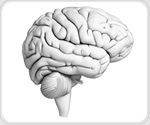| ||||||||||||||||||||||||||||||||||||||||||||||||
| ||||||||||||||||||||||||||||||||||||||||||||||||
| ||||||||||||||||||||||||||||||||||||||||||||||||
| ||||||||||||||||||||||||||||||||||||||||||||||||
| ||||||||||||||||||||||||||||||||||||||||||||||||
| ||||||||||||||||||||||||||||||||||||||||||||||||
viernes, 9 de febrero de 2018
Psychiatry - Feb 8, 2018 Edition
Health News and Information - News Medical
Suscribirse a:
Enviar comentarios (Atom)


































.png)









No hay comentarios:
Publicar un comentario